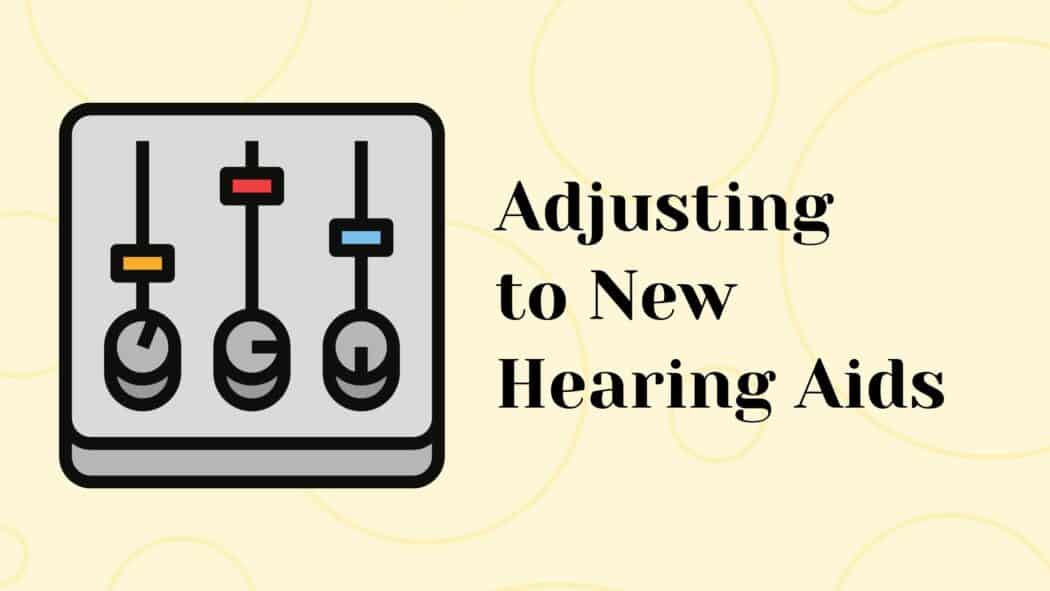It takes time to adjust to new hearing aids, especially if you are a first-time wearer. In addition to learning and familiarizing yourself with how this device works, you are hearing sounds and speech that you previously experienced difficulty processing. It takes time for your brain and auditory system to get used to these new stimuli and hearing in this new way. Retraining your hearing also involves hearing daily sounds differently like your own voice, chewing, and swallowing. These sounds can be unfamiliar and strange initially, but after some time, it will become normalized as you wear your hearing aids more. In addition to knowing that there is an adjustment period, there are tips you can practice to help your transition into wearing your hearing aids daily.
Wear Hearing Aids at Home First
The feeling of wearing hearing aids in your ears can feel funny or odd. Wearing them in a comfortable environment that you are familiar with can help you better integrate them and adjust. You can also experience new sensations as you are hearing new sounds and your brain is refamiliarizing itself. This can be overwhelming or tiring so starting at home can make you feel more at ease.
Additionally, it can be really useful to start by sitting in a quiet room where you live. This allows you to start with faint sounds: ticking of a clock, household appliances, sounds from the outdoors etc. and work your way up to sounds with greater volume. This helps your brain rediscover and process new stimuli which eases your way into hearing more sound.
Practice With Loved Ones
Having conversations with family and friends is a great way to get acclimated to your hearing aids in more of a comfortable and natural way. You may struggle through this initially and even experience frustration, being able to do so with people you know well can help you feel more at ease and supported. Be sure to be facing the speaker(s) during the conversation which helps you access lip reading and other non-verbal cues. Practicing with loved ones also helps you get used to having conversations with multiple people.
Anticipate Challenges & Be Patient
Hearing aids differ from glasses which one wears and can instantly see better, without having to really adjust and retain their vision. With hearing aids, your auditory system is being retrained to absorb and process sound with this new device which takes time. It can feel like you are being flooded with new sounds because if you’ve been experiencing hearing loss for some time, there are sounds you simply did not notice before. This can be as small as hearing a household appliance like the refrigerator or fan which can seem aggressively loud at first. It takes time to familiarize yourself with background noise again so it is important to remain patient and know that the kind of sound overload you may experience in the beginning will subside.
Practice Listening Exercises
There are a few listening exercises that you can practice to help you adjust with your new hearing aids. This includes applying subtitles or closed captioning when you are watching television or movies. Listening to speech and reading the words at the same time is a useful way to retrain your brain to make connections between sounds and language. Another way to do this is to listen to an audiobook while you read the text. This helps achieve the same thing as applying subtitles. You can also simply read the text aloud to yourself. This helps you get familiar with your own voice. Another listening exercise is to close your eyes and try to locate where sounds are coming from and hear differences between sounds.
Share Any Difficulties
While you are adjusting, it is helpful to keep track of how you are doing. Write down what is coming easy to you, what are the challenges you are experiencing, be specific about the types of sounds that are difficult, note if your ears feel uncomfortable etc. It is important to share this feedback with our team! We are here to make any adjustments as needed.
If you have questions about your new hearing aids or you’re interested in learning more about how you can benefit from hearing aids, contact us today!

